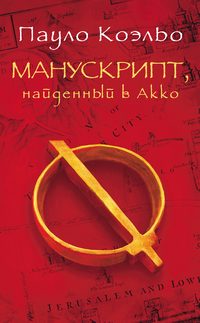
Полная версия
The Fifth Mountain
Elijah turned to the Levite’s body.
“That arrow was meant for you.” The soldier’s bow was still taut, and his hands were trembling. “Elijah was the only prophet who must be killed; the others could choose the faith of Baal,” he said.
“Then finish your task.”
He was surprised at his own calmness. He had imagined death so often during the nights in the stable, and now he saw that he had suffered unnecessarily; in a few seconds all would be ended.
“I can’t,” said the soldier, his hands still trembling, the arrow changing directions at every instant. “Leave, get out of my presence, because I believe God deflected my arrow and will curse me if I kill you.”
It was then, as he discovered that death could elude him, that the fear of death returned. There was still the possibility of seeing the ocean, of finding a wife, having children, and completing his work in the shop.
“Finish this here and now,” he said. “At this moment I am calm. If you tarry, I will suffer over all that I am losing.”
The soldier looked about him to make certain that no one had witnessed the scene. Then he lowered his bow, replaced the arrow in its quiver, and disappeared around the corner.
Elijah felt his legs begin to weaken; the terror had returned in all its intensity. He must flee at once, disappear from Gilead, never again have to meet face-to-face a soldier with a drawn bow and an arrow pointed at his heart. He had not chosen his destiny, nor had he sought out Ahab in order to boast to his neighbors that he could talk with the king. He was not responsible for the massacre of the prophets—nor even for, one afternoon, having seen time stop and the carpentry shop transformed into a dark hole filled with points of light.
Mimicking the soldier’s gesture, he looked to all sides; the street was deserted. He thought of seeing if he could still save the Levite’s life, but the terror quickly returned, and before anyone else could appear, Elijah fled.
HE WALKED FOR MANY HOURS, TAKING PATHS LONG since unused, until he arrived at the bank of the rivulet of Cherith. He felt shame at his cowardice but joy at being alive.
He drank a bit of water, sat, and only then realized the situation in which he found himself: the next day he would need to feed himself, and food was nowhere to be found in the desert.
He remembered the carpentry shop, his long years of work, and having been forced to leave it all behind. Some of his neighbors were friends, but he could not count on them; the story of his flight must have already spread throughout the city, and he was hated by all for having escaped while he sent true men of faith to martyrdom.
Whatever he had done in the past now lay in ruins—merely because he had elected to carry out the Lord’s will. Tomorrow, and in the days, weeks, and months to come, the traders from Lebanon would knock on his door and someone would tell them the owner had fled, leaving behind a trail of innocent prophets’ deaths. Perhaps they would add that he had tried to destroy the gods that protected heaven and earth; the story would quickly cross Israel’s borders, and he could forget forever marrying a woman as beautiful as those in Lebanon.
“THERE ARE the ships.”
Yes, there were the ships. Criminals, prisoners of war, fugitives were usually accepted as mariners because it was a profession more dangerous than the army. In war, a soldier always had a chance to escape with his life; but the seas were an unknown, populated by monsters, and when a tragedy occurred, none were left to tell the story.
There were the ships, but they were controlled by Phoenician merchants. Elijah was not a criminal, a prisoner, or a fugitive but someone who had dared raise his voice against the god Baal. When they found him out, he would be killed and cast into the sea, for mariners believed that Baal and his gods governed the storms.
He could not go toward the ocean. Nor could he make his way north, for there lay Lebanon. He could not go east, where certain tribes of Israel were engaged in a war that had already lasted two generations.
HE RECALLED the feeling of calm he had experienced in the presence of the soldier; after all, what was death? Death was an instant, nothing more. Even if he felt pain, it must pass at once, and then the Lord of Hosts would receive him in His bosom.
He lay down on the ground and looked at the sky for a long time. Like the Levite, he tried to make his wager. It was not a wager about God’s existence, for of that he had no doubt, but about the reason for his own life.
He saw the mountains, the earth that soon would be beset by a long drought, as the angel of the Lord had said, but for now still had the coolness of many generations of rain. He saw the rivulet of Cherith, whose waters in a short time would cease to flow. He took his leave of the world with fervor and respect, and asked the Lord to receive him when his time was come.
He thought about the reason for his existence, and obtained no answer.
He thought about where he should go, and discovered that he was surrounded.
The following day he would go back and hand himself over, even if his fear of death returned.
He tried to find joy in the knowledge that he would go on living for a few more hours. But it was futile; he had just discovered that, as in almost all the days of a life, man is powerless to make a decision.
Конец ознакомительного фрагмента.
Текст предоставлен ООО «ЛитРес».
Прочитайте эту книгу целиком, купив полную легальную версию на ЛитРес.
Безопасно оплатить книгу можно банковской картой Visa, MasterCard, Maestro, со счета мобильного телефона, с платежного терминала, в салоне МТС или Связной, через PayPal, WebMoney, Яндекс.Деньги, QIWI Кошелек, бонусными картами или другим удобным Вам способом.











